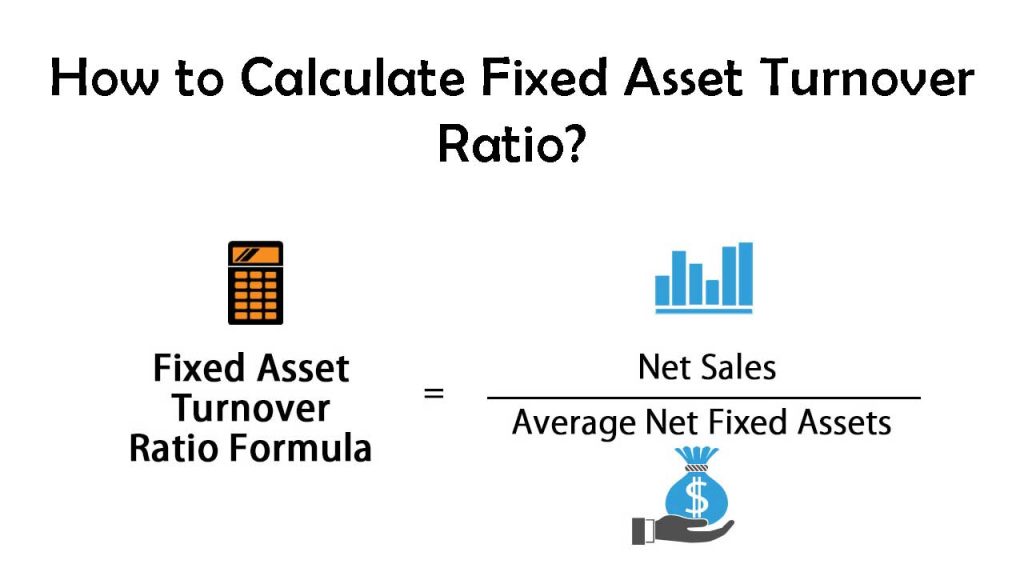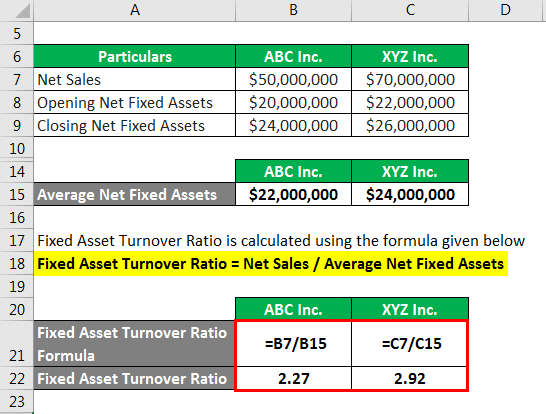
It also makes conceptual sense that there is a wider gap between the amount of sales and total assets compared to the amount of sales and a subset of assets. The formula is simple but powerful, and it reveals whether a company’s investment in its fixed assets is paying off in terms of revenue generation. The fixed asset focuses on analyzing the effectiveness of a company in utilizing its fixed asset or PP&E, which is a non-current asset. The asset turnover ratio, on the other hand, consider total assets, which includes both current and non-current assets.
Future Trends and Forecasts in Fixed Asset Turnover Ratios
- Also, a high fixed asset turnover does not necessarily mean that a company is profitable.
- This ratio assesses a company’s capacity to generate net sales from its fixed-asset investments, specifically property, plant, and equipment (PP&E).
- Creditors, on the other hand, want to make sure that the company can produce enough revenues from a new piece of equipment to pay back the loan they used to purchase it.
- Total sales or revenue is found on the company’s income statement and is the numerator.
- These fields rely heavily on infastructure and machinery, which can slow down asset turnover.
He is a CFA charterholder as well as holding FINRA Series 7, 55 & 63 licenses. He currently researches and teaches economic sociology and the social studies of finance at the Hebrew University in Jerusalem. Below we describe the fixed Fixed Asset Turnover definition, explain how you can calculate it, and finally, how to use it to grow your business.
What Is Asset Turnover Ratio and How Is It Calculated?
For example, it can inform decisions related to investment in new equipment or technologies, process improvements to optimize operational efficiency, and identifying areas for cost savings. By using the fixed asset turnover ratio in conjunction with other financial metrics and market insights, you can make informed decisions that position your company for long-term success. It is important to note that the fixed asset turnover ratio should not be used in isolation to evaluate a company’s financial performance. Other financial ratios, such track your charitable donations to save you money at tax time as the return on assets and return on equity, should also be considered to gain a comprehensive understanding of the company’s profitability and efficiency. Additionally, it is important to compare a company’s fixed asset turnover ratio to its competitors within the same industry to gain a better understanding of its competitive position. Additionally, a high fixed asset turnover ratio can be an attractive indicator to potential investors or lenders, as it suggests that your company is effectively utilizing its assets to generate revenue.
What Is a Good Fixed Asset Turnover Ratio?
However, differences in the age and quality of fixed assets can make cross-company comparisons challenging. Older, fully depreciated assets may result in a higher ratio, potentially giving a misleading impression of efficiency. Management strategies such as outsourcing production can skew the FAT ratio. By outsourcing, a company might reduce its reliance on fixed assets, thereby improving its FAT ratio. However, this does not necessarily mean the company is performing well overall.
Companies with a higher FAT ratio are generally considered to be more efficient than companies with low FAT ratio. Adam Hayes, Ph.D., CFA, is a financial writer with 15+ years Wall Street experience as a derivatives trader. Besides his extensive derivative trading expertise, Adam is an expert in economics and behavioral finance. Adam received his master’s in economics from The New School for Social Research and his Ph.D. from the University of Wisconsin-Madison in sociology.

XYZ has generated almost the same amount of income with over half the resources as ABC. It is important to consider the larger context in which your company operates to gain a more accurate understanding of the factors impacting your ratio. The ratio can be used as a benchmark and compared with the other peer companies to clarify the performance of the business operations and its place in the industry as a whole. This will give more insight into the operational efficiency level and its asset utilization capacity.
Assuming the company had no returns for the year, its net sales for the year were $10 billion. The company’s average total assets for the year was $4 billion (($3 billion + $5 billion) / 2 ). A high turn over indicates that assets are being utilized efficiently and large amount of sales are generated using a small amount of assets. It could also mean that the company has sold off its equipment and started to outsource its operations.
On the other hand, a low total asset turnover suggests that the company is unable to generate satisfactory results with the asset it has in hand. Being able to assess a company’s efficiency is one of the main steps when analyzing investment opportunities. Hence, it is vital for investors to understand the calculation using the total asset turnover formula.
For instance, if the total turnover of a company is 1.0x, that would mean the company’s net sales are equivalent to the average total assets in the period. In other words, this company is generating $1.00 of sales for each dollar invested into all assets. No, although high fixed asset turnover means that the company utilizes its fixed assets effectively, it does not guarantee that it is profitable. A company can still have high costs that will make it unprofitable even when its operations are efficient. As different industries have different mechanics and dynamics, they all have a different good fixed asset turnover ratio. For example, a cyclical company can have a low fixed asset turnover during its quiet season but a high one in its peak season.
